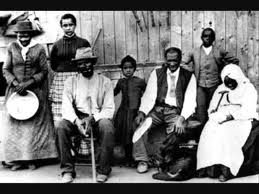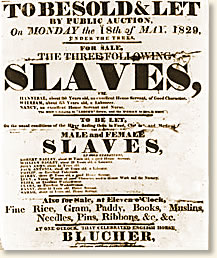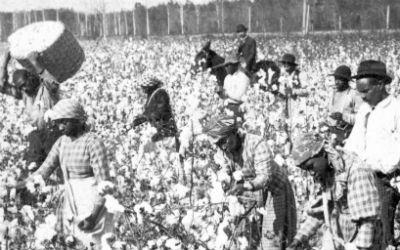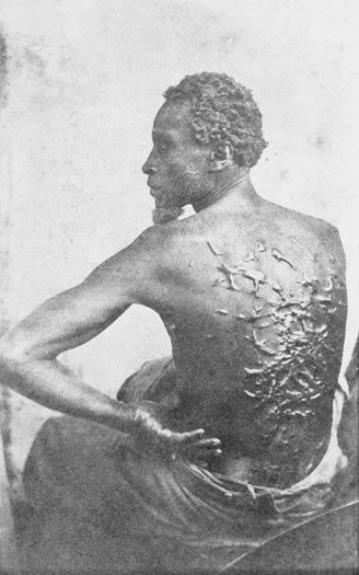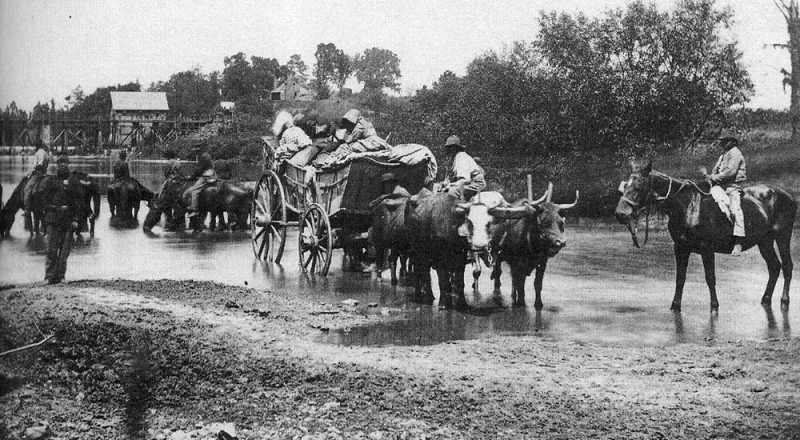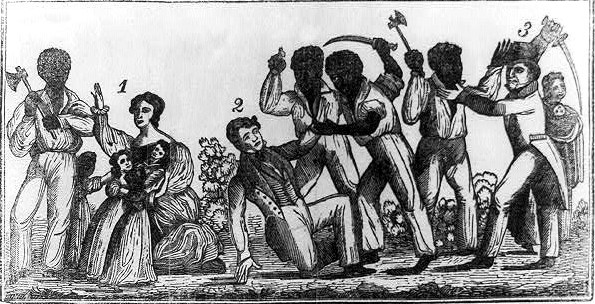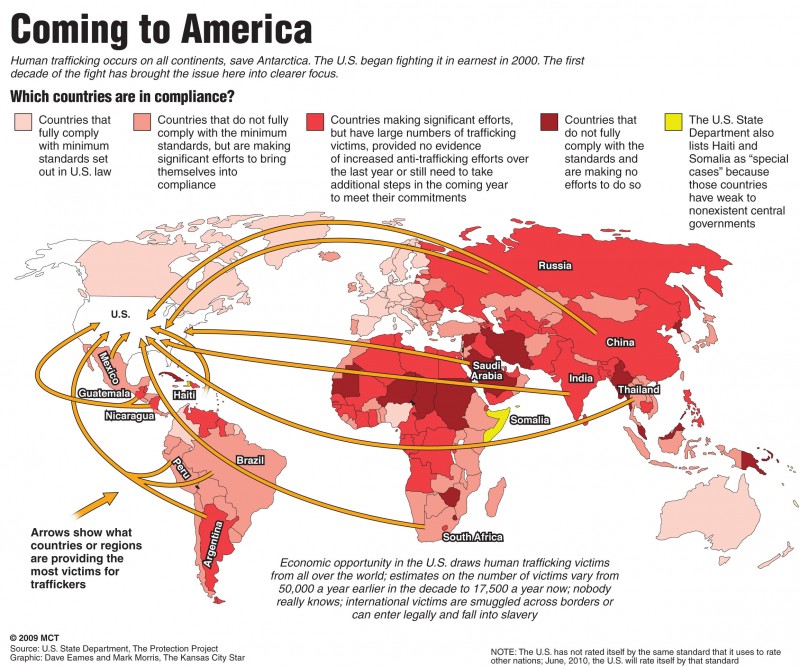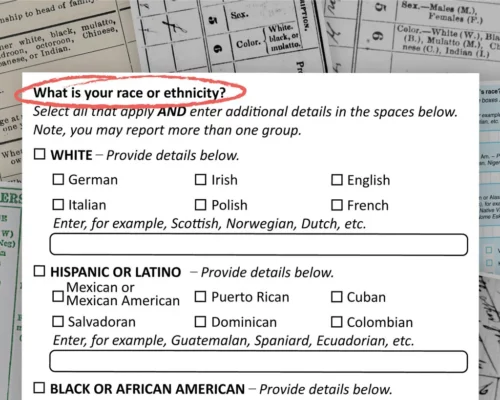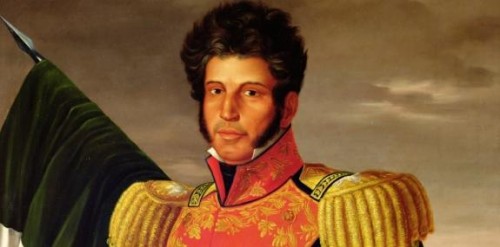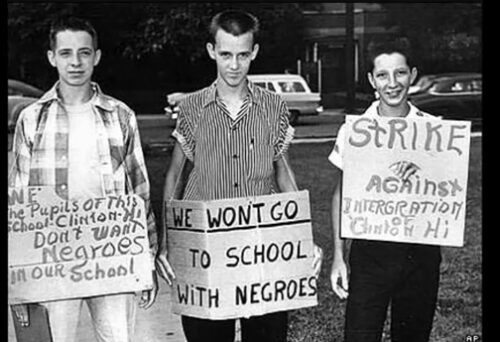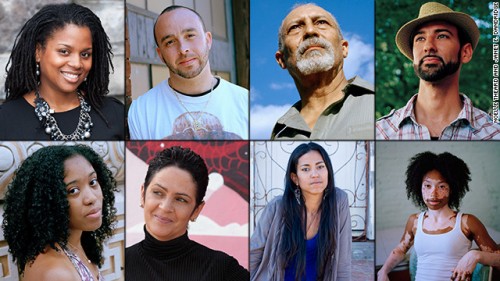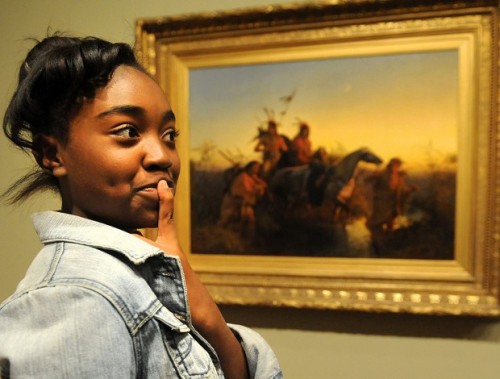Race
Explore Our Online Exhibits
Breaking News
Worldwide Community Events
Week 5
- Sun 1
- Mon 2
- Tue 3
- Wed 4
- Thu 5
- Fri 6
- Sat 7
- Sun 8
- Mon 9
- Tue 10
- Wed 11
- Thu 12
- Fri 13
- Sat 14
- Sun 15
- Mon 16
- Tue 17
- Wed 18
- Thu 19
- Fri 20
- Sat 21
- Sun 22
- Mon 23
- Tue 24
- Wed 25
- Thu 26
- Fri 27
- Sat 28
- Sun 29
- Mon 30
- Tue 1
- Wed 2
- Thu 3
- Fri 4
- Sat 5
-
01June

Discounted Tours Every Wednesday
ABHM in Milwaukee, WI01June01June 8:00 AM - 12:00 AM
8:00 AM - 12:00 AMSailing to Freedom: Maritime Dimensions of the Underground Railroad
Chesapeake Bay Maritime Museum01June 8:00 AM - 12:00 AM
8:00 AM - 12:00 AMIn Slavery’s Wake: Making Black Freedom in the World
National Museum of African American History and Culture -
02June

Discounted Tours Every Wednesday
ABHM in Milwaukee, WI02June02June All Day
All DaySailing to Freedom: Maritime Dimensions of the Underground Railroad
Chesapeake Bay Maritime Museum02June All Day
All DayIn Slavery’s Wake: Making Black Freedom in the World
National Museum of African American History and Culture -
03June

Discounted Tours Every Wednesday
ABHM in Milwaukee, WI03June03June All Day
All DaySailing to Freedom: Maritime Dimensions of the Underground Railroad
Chesapeake Bay Maritime Museum03June All Day
All DayIn Slavery’s Wake: Making Black Freedom in the World
National Museum of African American History and Culture -
04June

Discounted Tours Every Wednesday
ABHM in Milwaukee, WI04June04June All Day
All DaySailing to Freedom: Maritime Dimensions of the Underground Railroad
Chesapeake Bay Maritime Museum04June All Day
All DayIn Slavery’s Wake: Making Black Freedom in the World
National Museum of African American History and Culture -
05June

Discounted Tours Every Wednesday
ABHM in Milwaukee, WI05June05June All Day
All DaySailing to Freedom: Maritime Dimensions of the Underground Railroad
Chesapeake Bay Maritime Museum05June
Chicago Blues Festival 2025
Millennium Park05June All Day
All DayIn Slavery’s Wake: Making Black Freedom in the World
National Museum of African American History and Culture -
06June

Discounted Tours Every Wednesday
ABHM in Milwaukee, WI06June06June All Day
All DaySailing to Freedom: Maritime Dimensions of the Underground Railroad
Chesapeake Bay Maritime Museum06June
Chicago Blues Festival 2025
Millennium Park06June All Day
All DayIn Slavery’s Wake: Making Black Freedom in the World
National Museum of African American History and Culture06June
-
07June

Discounted Tours Every Wednesday
ABHM in Milwaukee, WI07June07June All Day
All DaySailing to Freedom: Maritime Dimensions of the Underground Railroad
Chesapeake Bay Maritime Museum07June
Chicago Blues Festival 2025
Millennium Park07June All Day
All DayIn Slavery’s Wake: Making Black Freedom in the World
National Museum of African American History and Culture07June
Art & Activism Retreats with Casa Romero
ABHM in Milwaukee, WI07June
-
08June

Discounted Tours Every Wednesday
ABHM in Milwaukee, WI08June08June All Day
All DaySailing to Freedom: Maritime Dimensions of the Underground Railroad
Chesapeake Bay Maritime Museum08June
Chicago Blues Festival 2025
Millennium Park08June 12:00 AM - 6:00 PM
12:00 AM - 6:00 PMIn Slavery’s Wake: Making Black Freedom in the World
National Museum of African American History and Culture08June
Art & Activism Retreats with Casa Romero
ABHM in Milwaukee, WI -
09June

Discounted Tours Every Wednesday
ABHM in Milwaukee, WI09June09June All Day
All DaySailing to Freedom: Maritime Dimensions of the Underground Railroad
Chesapeake Bay Maritime Museum -
10June

Discounted Tours Every Wednesday
ABHM in Milwaukee, WI10June10June All Day
All DaySailing to Freedom: Maritime Dimensions of the Underground Railroad
Chesapeake Bay Maritime Museum -
11June

Discounted Tours Every Wednesday
ABHM in Milwaukee, WI11June11June All Day
All DaySailing to Freedom: Maritime Dimensions of the Underground Railroad
Chesapeake Bay Maritime Museum -
12June

Discounted Tours Every Wednesday
ABHM in Milwaukee, WI12June12June All Day
All DaySailing to Freedom: Maritime Dimensions of the Underground Railroad
Chesapeake Bay Maritime Museum -
13June

Discounted Tours Every Wednesday
ABHM in Milwaukee, WI13June13June All Day
All DaySailing to Freedom: Maritime Dimensions of the Underground Railroad
Chesapeake Bay Maritime Museum -
14June

Discounted Tours Every Wednesday
ABHM in Milwaukee, WI14June14June All Day
All DaySailing to Freedom: Maritime Dimensions of the Underground Railroad
Chesapeake Bay Maritime Museum14June
Art & Activism Retreats with Casa Romero
ABHM in Milwaukee, WI14June
-
15June

Discounted Tours Every Wednesday
ABHM in Milwaukee, WI15June15June All Day
All DaySailing to Freedom: Maritime Dimensions of the Underground Railroad
Chesapeake Bay Maritime Museum15June
Art & Activism Retreats with Casa Romero
ABHM in Milwaukee, WI -
16June

Discounted Tours Every Wednesday
ABHM in Milwaukee, WI16June16June All Day
All DaySailing to Freedom: Maritime Dimensions of the Underground Railroad
Chesapeake Bay Maritime Museum -
17June

Discounted Tours Every Wednesday
ABHM in Milwaukee, WI17June17June All Day
All DaySailing to Freedom: Maritime Dimensions of the Underground Railroad
Chesapeake Bay Maritime Museum -
18June

Discounted Tours Every Wednesday
ABHM in Milwaukee, WI18June18June All Day
All DaySailing to Freedom: Maritime Dimensions of the Underground Railroad
Chesapeake Bay Maritime Museum18June
-
19June19June
 All Day
All DaySailing to Freedom: Maritime Dimensions of the Underground Railroad
Chesapeake Bay Maritime Museum19June
Juneteenth At ABHM: Slice of History
ABHM in Milwaukee, WI19June
Slice of History: Juneteenth Event Schedule
ABHM in Milwaukee, WI -
20June20June
 All Day
All DaySailing to Freedom: Maritime Dimensions of the Underground Railroad
Chesapeake Bay Maritime Museum -
21June21June
 All Day
All DaySailing to Freedom: Maritime Dimensions of the Underground Railroad
Chesapeake Bay Maritime Museum -
22June22June
 All Day
All DaySailing to Freedom: Maritime Dimensions of the Underground Railroad
Chesapeake Bay Maritime Museum -
23June23June
 All Day
All DaySailing to Freedom: Maritime Dimensions of the Underground Railroad
Chesapeake Bay Maritime Museum -
24June24June
 All Day
All DaySailing to Freedom: Maritime Dimensions of the Underground Railroad
Chesapeake Bay Maritime Museum -
25June25June
 All Day
All DaySailing to Freedom: Maritime Dimensions of the Underground Railroad
Chesapeake Bay Maritime Museum -
26June26June
 All Day
All DaySailing to Freedom: Maritime Dimensions of the Underground Railroad
Chesapeake Bay Maritime Museum26June
-
27June27June
 All Day
All DaySailing to Freedom: Maritime Dimensions of the Underground Railroad
Chesapeake Bay Maritime Museum -
28June28June
 All Day
All DaySailing to Freedom: Maritime Dimensions of the Underground Railroad
Chesapeake Bay Maritime Museum28June
-
29June29June
 All Day
All DaySailing to Freedom: Maritime Dimensions of the Underground Railroad
Chesapeake Bay Maritime Museum -
30June30June
 All Day
All DaySailing to Freedom: Maritime Dimensions of the Underground Railroad
Chesapeake Bay Maritime Museum -
01July01July
 All Day
All DaySailing to Freedom: Maritime Dimensions of the Underground Railroad
Chesapeake Bay Maritime Museum01July
Summer Tour Discounts
ABHM in Milwaukee, WI -
02July02July
 All Day
All DaySailing to Freedom: Maritime Dimensions of the Underground Railroad
Chesapeake Bay Maritime Museum02July
Summer Tour Discounts
ABHM in Milwaukee, WI -
03July03July
 All Day
All DaySailing to Freedom: Maritime Dimensions of the Underground Railroad
Chesapeake Bay Maritime Museum03July
Summer Tour Discounts
ABHM in Milwaukee, WI -
04July04July
 All Day
All DaySailing to Freedom: Maritime Dimensions of the Underground Railroad
Chesapeake Bay Maritime Museum04July
Summer Tour Discounts
ABHM in Milwaukee, WI -
05July05July
 All Day
All DaySailing to Freedom: Maritime Dimensions of the Underground Railroad
Chesapeake Bay Maritime Museum05July
Summer Tour Discounts
ABHM in Milwaukee, WI
Share
The concept of race is important to America's Black Holocaust Museum because of its impact on the African diaspora. Race is a way of categorizing people by physical features–predominantly skin color. In much of the world, the white (caucasian) race is viewed more favorably than other races. The social construct has been used to justify kidnapping and enslaving African peoples and centuries of racism, including redlining, Jim Crow laws, anti-Black violence, and racial stereotypes about laziness, to give just a few examples.
While race-based arguments for inhumane treatment do not reflect biological reality, especially because someone can be of multiple races, members of the same race may share certain cultural and genetic characteristics. For example, the Black community is disproportionately impacted by Sickle Cell Disease. However, it is important to remember that commonalities between people of the same race do not indicate a genetic or biological component. Instead, racism contributes to environments in ways that can have serious and lasting impacts, especially on Black health and wealth. For example, redlining and lack of money led to many Black people living in areas with more pollution, and those in the medical field do not always provide the same service to Black patients, both of which can impact health.
Because of these inequalities, the Civil Rights Movement and other social, legal, and economic efforts for equality often specifically benefit Black people and other people of color. Race and its impact on the world have also been the topic of interdisciplinary study, and some artists specifically incorporate race--and racism--into their work. Furthermore, race can be a source of pride, sometimes in response to racism and negative stereotypes.
Research into how children learn to recognize faces could help us understand race-based discrimination.
Read MoreThanks to DNA testing, people are discovering surprising racial ancestry–and having to reconcile that with their identities.
Read MoreOne author tackles a tired, racism belief about economic disparities and what–if anything–they say about work ethic.
Read MoreAs the American population becomes more colorful, we must reexamine what words like “minority” mean and who systems serve.
Read MoreKevin P. Chavous ponders the significance of the Supreme Court decree for desegregation in the face of today’s education realities.
Read MorePoliticians and citizens alike argue about the state of taxes, but no one seems willing to bring race into the discussion.
Read MoreWhat does it mean to be Black in America? As it turns out, the answer is more complicated than it seems, and racism plays a role.
Read MoreThe St. Louis Art Museum hosts an annual exhibit featuring people of color to resist racist stereotypes that plague Black Americans.
Read MoreHenry Louis Gates, Jr. examines DNA databases to learn how Black the country’s Black residents really are… to surprising results.
Read More
